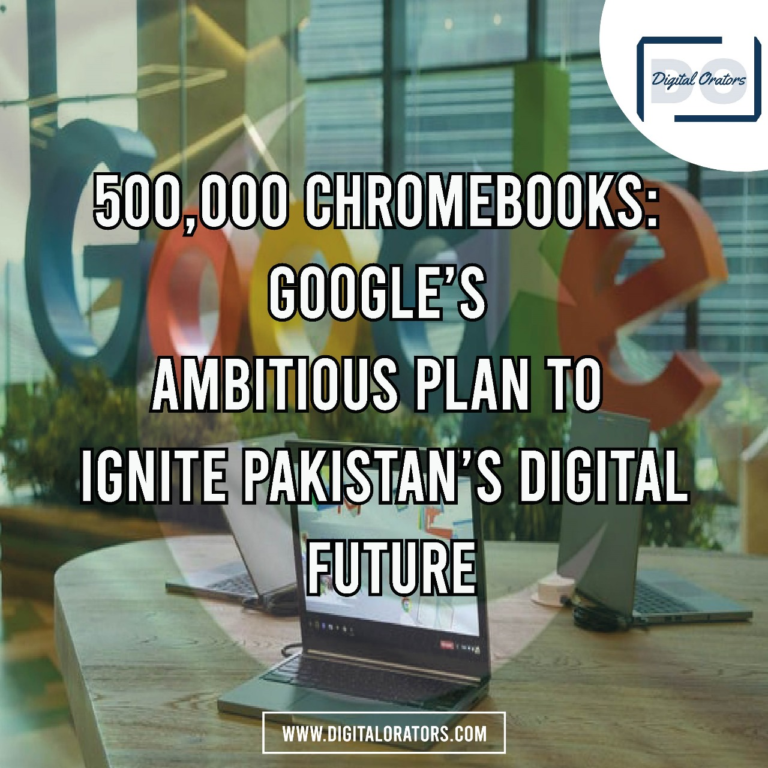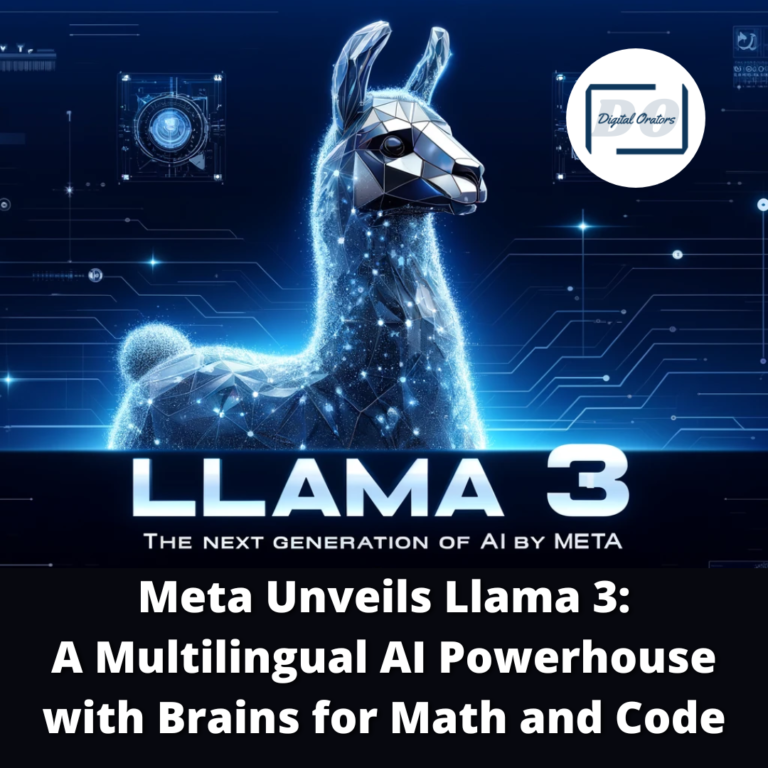
Weekly Tech News (21 Sept - 27 Sept 2024)

Amazon Web Services (AWS) is set to revolutionize the UK’s tech landscape with a staggering £8 billion investment. Over the next five years, this massive infusion will turbocharge cloud and AI advancements.
In Brief:
1- £8 Billion Boost: Major expansion in UK data centers.
2- AI Leap: Fueling the future of generative AI.
3- Tech Growth: Powering British business innovation.
4- Regulatory Note: Investment arrives amid increased scrutiny.
Tanuja Randery of AWS states, “Generative AI is set to redefine tech. Our investment will elevate UK businesses to new heights.”
Stay tuned as AWS drives the next wave of technological advancement in the UK!
Share this news on Social Media

Alibaba is reshaping B2B commerce with cutting-edge AI tools and flexible financing solutions. At Co-Create 2024, it unveiled the AI Sourcing Agent, which uses natural language queries for faster, more precise product searches, and a Co-Branded Mastercard offering 3% cashback or 60-day interest-free terms. These innovations aim to streamline global sourcing and empower small to medium-sized businesses.
With over 30,000 businesses already utilizing its AI solutions, Alibaba is driving digital transformation in global trade. By blending advanced AI with smart payment options, the company is setting new standards in e-commerce and B2B growth.
Share this news on Social Media

YouTube Launches AI Tools to Protect Creators
YouTube is set to roll out groundbreaking AI tools designed to give creators unprecedented control over content that mimics their voice or likeness:
1- Synthetic-Singing ID: This new feature will detect AI-generated voice imitations, integrating with YouTube’s Content ID system. A pilot test is slated for next year.
2- Facial Deepfake Detection: YouTube is developing technology to identify unauthorized deepfakes of celebrities and creators.
3- Enhanced Anti-Scraping Measures: The platform is intensifying efforts to block unauthorized scraping of content for AI training.
These innovations underscore YouTube’s commitment to protecting creators’ rights while fostering responsible AI development.
Share this news on Social Media

Google has announced a major initiative to produce 500,000 Chromebooks in Pakistan. The launch event in Islamabad featured Scott Beaumont, President of Google Asia Pacific, presenting the first Chromebook to Prime Minister Shehbaz Sharif.
Key Points:
1- Economic Impact: Farhan Qureshi highlighted the initiative’s potential to boost the economy and support freelancers.
2- Government Goals: PM Shehbaz set a $25 billion IT export target for the next five years and stressed investment in tech education.
3- Digital Commitment: The government aims for a paperless, transparent administration and is committed to digital progress.
State Minister Shaza Fatima Khawaja praised Google’s role in advancing Pakistan’s digital future.
State Minister Shaza Fatima Khawaja praised Google’s commitment to Pakistan’s digital future.
Share this news on Social Media

𝐒𝐚𝐮𝐝𝐢 𝐁2𝐂 𝐄-𝐜𝐨𝐦𝐦𝐞𝐫𝐜𝐞 𝐭𝐨 𝐑𝐞𝐚𝐜𝐡 $70𝐁 𝐛𝐲 2025, 𝐁𝐨𝐨𝐬𝐭𝐢𝐧𝐠 12% 𝐨𝐟 𝐆𝐃𝐏.
Saudi Arabia’s B2C e-commerce market is on track to hit $70 billion by next year, significantly contributing 12% to the nation’s GDP. As the kingdom accelerates its economic diversification, e-commerce is emerging as a key growth driver, backed by substantial venture capital investment and a rapidly expanding digital retail landscape.
𝐊𝐞𝐲 𝐏𝐨𝐢𝐧𝐭𝐬:
1- $428M invested in Saudi e-commerce ventures in 2023.
2- Over 42,900 online stores and 14,000 fulfillment centers fueling growth.
3- 34.5M online shoppers projected by 2025, underscoring robust market potential.
Share this news on Social Media
In a bid to enhance Pakistan’s rapidly growing gaming and app development sector, Google has unveiled two new programs: the Game Design Masterclass and Google Ads Academy. These initiatives aim to equip local developers with the skills and knowledge necessary to create world-class games and applications.
The launch took place at the Think Apps 2024 event in Lahore, which drew nearly 350 developers from across Pakistan and global industry leaders. The programs will be rolled out across major cities in Pakistan over the next six months.
According to Farhan Qureshi, Google’s Director for Pakistan, the country’s app and gaming industry has immense potential, with local studios like Vyro, AI, Hazel Mobile, Games District, GeniTeam, and Finz Games achieving significant success globally.
A recent report by Access Partnership predicts that Pakistan’s gaming and app sector could generate $6.6 billion in revenue annually by 2030, driven by a focus on digital exports. Despite a slight decline in overall app downloads in 2023, in-app purchase revenue surged by 50%, placing Pakistan 17th globally.
Google’s initiatives aim to support Pakistani developers in building exceptional games and apps, driving profitability, and fostering sustainable businesses. By providing access to AI-powered tools and resources, Google seeks to boost Pakistan’s digital economy and create high-value employment opportunities.

n a groundbreaking study, a machine learning system has been controlling variable speed limits on a busy Tennessee freeway since March, aiming to reduce phantom traffic jams and improve safety. The AI-powered system, deployed on a 27-kilometer section of Interstate 24 near Nashville, uses historical traffic data and real-time camera monitoring to adjust speed limits.
While the system has operated successfully 98% of the time, it occasionally suggests speed limit changes that exceed federal limits, prompting a switch to the old system. Researchers are still analyzing data to determine the impact on traffic flow and safety.
Experts emphasize the importance of variable speed limit systems in preventing traffic breakdowns, particularly on busy roads. The study’s findings, expected later this year, could pave the way for a new approach to freeway management.
Share this news on Social Media
Meta just unleashed the latest iteration of its AI marvel, Llama 3! This multilingual maestro boasts impressive new tricks: it can converse in eight languages, tackle complex math problems, and even write high-quality computer code.
Llama 3 comes in three flavors, catering to different needs. The flagship model boasts a whopping 405 billion parameters, making it a true powerhouse for advanced tasks. This puts it neck-and-neck with the likes of OpenAI’s GPT-4 and Anthropic’s Claude, but with a twist: Meta’s offering is largely free for developers.
Meta believes open-source AI fosters innovation and attracts top talent. Plus, by making Llama 3 accessible, they hope to cultivate a vibrant developer ecosystem building incredible applications on top of their platform.
Here is what makes Llama 3 stand out:
• Multilingual Magic: Converse fluently in eight languages, breaking down communication barriers.
• Math Whiz: Solve complex equations, making Llama 3 a valuable tool for students and researchers.
• Coding Guru: Generate high-quality computer code, streamlining development processes.
• Open Source Advantage: Freely available for developers to explore and build upon.


